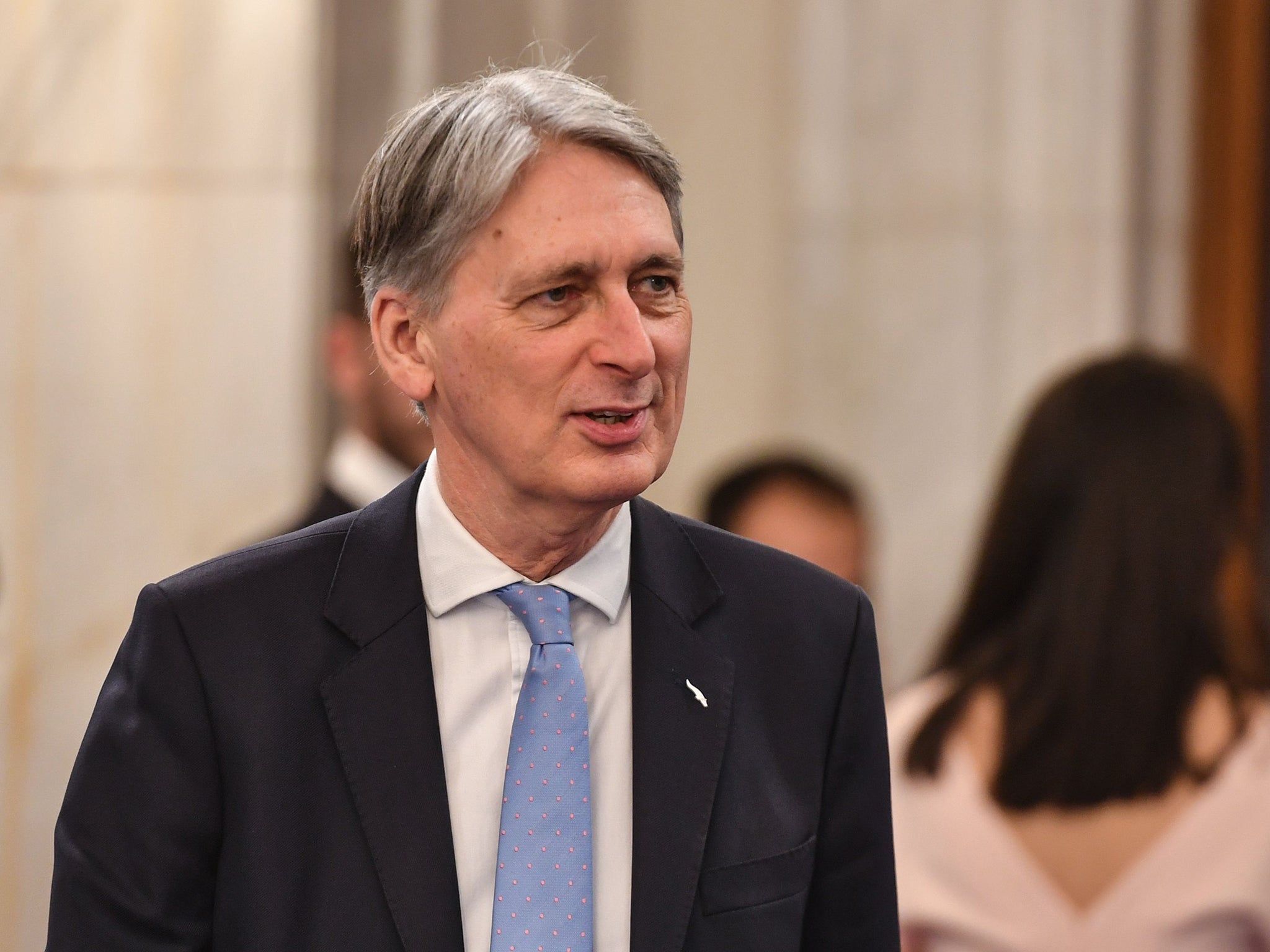Philip Hammond accused of trying to kill off landmark action on global warming by claiming bill will top £1 trillion
Theresa May expected to put forward legislation to reach 'net zero' greenhouse gas emissions - but chancellor's 'wrong sums' threaten any action, critics say

Your support helps us to tell the story
From reproductive rights to climate change to Big Tech, The Independent is on the ground when the story is developing. Whether it's investigating the financials of Elon Musk's pro-Trump PAC or producing our latest documentary, 'The A Word', which shines a light on the American women fighting for reproductive rights, we know how important it is to parse out the facts from the messaging.
At such a critical moment in US history, we need reporters on the ground. Your donation allows us to keep sending journalists to speak to both sides of the story.
The Independent is trusted by Americans across the entire political spectrum. And unlike many other quality news outlets, we choose not to lock Americans out of our reporting and analysis with paywalls. We believe quality journalism should be available to everyone, paid for by those who can afford it.
Your support makes all the difference.Philip Hammond has been accused of trying to block a landmark bid to wipe out UK contributions to global warming by 2050, by claiming the bill will be more than £1 trillion.
Campaigners and opposition politicians protested that the chancellor’s warning – revealed in a leaked letter – ignored the massive cost of failing to act on runaway climate change.
The £1 trillion claim came as Theresa May is expected to attempt to make net greenhouse gas emissions a “legacy” achievement, by introducing legislation as early as next week.
The move will raise hopes of meeting the call by the independent Committee on Climate Change (CCC) to quickly enact a legally-binding duty to hit the 2050 target – now threatened by Mr Hammond’s intervention.
Dr Doug Parr, chief scientist for Greenpeace UK, said: “The Treasury is putting their ideology before our wellbeing and trying to shape the public debate for political ends.”
And Ed Davey, a Liberal Democrat leadership candidate, warned: “Hammond might be trying to reclaim his crown as a fiscal hawk in the dying embers of May’s premiership, but this intervention is wrong headed and threatens our children’s future.”
The CCC called for the zero-emissions target for 2050 to be made law immediately – ahead of a UN summit in September – insisting “the quicker you do it the cheaper it is”.
Its blueprint would mean the end of petrol and diesel cars and gas boilers, a drastic cut in people's meat consumption and the planting of at least 1.5 billion trees.
Emissions from some activities, including air travel and farming, are viewed as unavoidable by 2050, but would be balanced by taking carbon out of the air by growing trees or burying carbon dioxide.
Now Mr Hammond has told the outgoing prime minister the commitment will shrink the money available for schools, the NHS, the police and public spending priorities.
His letter also warned that the target would render some industries “economically uncompetitive” without huge government subsidies.
The CCC estimated that reaching net zero will cost £50bn a year, but the department for business, energy and industrial strategy (BEIS) puts the figure at £70bn, according to the chancellor’s letter.
“On the basis of these estimates, the total cost of transitioning to a zero-carbon economy is likely to be well in excess of a trillion pounds,” he wrote.”
Mr Hammond said it was right for the UK to show leadership on climate change, but warned the prime minister that the implications of the policy needed to be “better understood”.
He urged Downing Street to support a Treasury review to minimise the cost of the policy for taxpayers and consumers to prevent “potentially damaging impacts”.
The letter also suggested that the government give itself an “explicit review point”, or a get-out clause to reconsider the target if other countries did not follow suit.
Dr Parr added: “If you want to know whether a policy is a good idea, you include the benefits as well as the costs – and, in this case, the benefits include an economy fit for the twenty-first century, cleaner air, warmer homes and maximising the chances of civilisation surviving.”
And Mr Davey said: “The cost of tackling the climate emergency is massively outweighed by the long-term cost of not acting. The chancellor has got his sums wrong.”
The prime minister’s spokeswoman would not say whether she intended to formally commit the government to the 2050 target before leaving office, at the end of July.
“In the week of the CCC report, we strongly welcomed the recommendations but set out that we would be formally responding as soon as possible. That remains our intention.”
Join our commenting forum
Join thought-provoking conversations, follow other Independent readers and see their replies
Comments